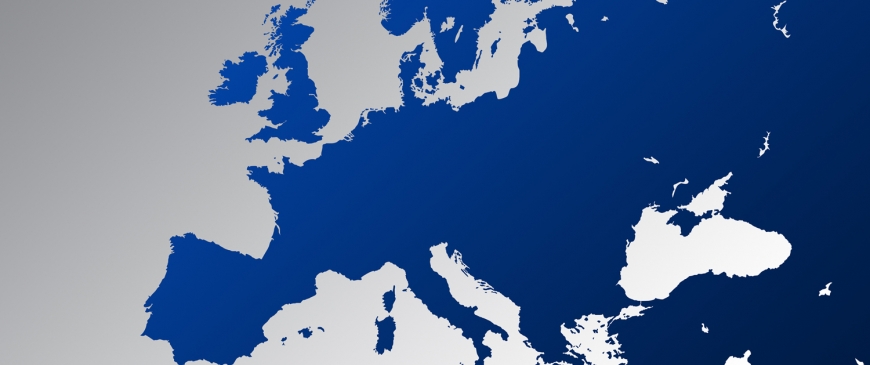
Unnoticed by Brexiteers, the idea of an EU super-state is quietly dying
There are some things that British Eurosceptics and European federalists tend to agree on. They think the EU is moving inevitably towards a federal future; and that the euro, in particular, will not survive unless its members shift a lot of decision-making powers to Brussels institutions. For several years, Eurosceptics and federalists have assumed that a new EU treaty would be required to fix the eurozone’s ills. That prediction seemed to be confirmed by statements from several European leaders that a new EU treaty would emerge after the 2017 French and German elections.
Those campaigning for Brexit in the UK referendum have made much of the EU’s supposedly inexorable movement towards a "super-state", claiming that the British will be dragged along in its wake. However, unnoticed by Brexiteers, the mood in national capitals and in Brussels has shifted in recent months.
Donald Tusk, president of the European Council, recently told a gathering of Christian Democrats that “we have failed to notice that ordinary people don’t share our Euro-enthusiasm”. He chided elites for promoting a “Utopia of Europe without nation-states” and added that “a spectre of break-up is haunting Europe, and a vision of a federation doesn’t seem to me like the best answer”.
Senior figures in the EU now say they don’t want a new treaty for a very long time, and perhaps ever. This is a big change for the EU, which has grown used to drawing up a new treaty every few years. Since the Single European Act was signed in 1986, the treaties of Maastricht, Amsterdam, Nice and Lisbon have all strengthened European integration.
Why do governments no longer want a new treaty? One reason is that the eurozone, though still beset with numerous problems, is not on the brink of collapse. Incremental reforms and policy shifts, such as the creation of bail-out funds, the banking union and bond-buying schemes, together with a softening of budgetary austerity, have enabled the euro to muddle through. There is no immediate necessity to create federal eurozone institutions.
The second reason is that, even if it did become urgent to revamp eurozone governance, France and Germany cannot agree on what the next steps should be. The Germans want tighter discipline on national budgets and a mechanism to make governments adopt structural reforms. But the French dislike those ideas and instead want a eurozone budget and moves towards "mutualising" eurozone sovereign debts. Berlin worries that these French schemes would enable profligate southerners to get their hands on German taxpayers’ money. The gap between the two governments appears unbridgeable.
The third reason is that, even if the politicians could reach an accord on the basis for a new treaty, public opinion in France and Germany – and in many other member-states – is unwilling to transfer significant powers to eurozone or EU institutions. Therefore neither the French nor the German parliament is likely to vote for the kind of changes that the other one desires.
Underlying this third point is a fourth: no government wants to risk a referendum. A new treaty would certainly trigger referendums in Denmark, Ireland and the Netherlands, and quite possibly in France, too. Earlier EU treaties have been voted down by electorates in all of those countries.
All this explains the strident words I recently heard from a top official in The Hague: “We don’t want a new EU treaty, not just in the next few years, but ever”.
A few days later I visited the European Parliament and the European Commission, normally bastions of federalist thinking. One senior figure said that federalists must learn patience, and create a more integrated Europe very slowly, by passing new laws, rather than through a new treaty. Another – who a year ago was full of talk of treaty change – had lowered his expectations. In the next five-year Commission (due to run from 2019-24), he said, “we may get round to starting to talk about the possibility of a new treaty”.
Britain’s Eurosceptics don’t seem to have noticed the weakness of European federalism. To be fair to them, the Five Presidents Report of June 2015 – whose lead author was Commission president Jean-Claude Juncker – does say that in the long run the eurozone should have a single treasury and binding rules on economic convergence.
But unfortunately for Juncker and other committed federalists, the report is gathering dust. The German government – whose views are pre-eminent in eurozone matters – has rejected it, on the grounds that it could lead to a "transfer union". Italy, like France, would support those aspects of federalism that made Germany subsidise the south, but not those that gave the EU more power over national economic policy. Apart from Belgium and perhaps Luxembourg, no EU government truly shares the federalist vision of some MEPs and Commission officials.
Could Brexit revive this moribund ideology? Most governments think that a British vote to leave would be the wrong time to leap towards further integration. Germans officials say that it would look ridiculous for the EU to react by charging ahead with federalism. Indeed, a post-Brexit EU – with populists and eurosceptics energised across the continent – is likely to move towards the "Europe des patries" that de Gaulle wanted, with national capitals calling the shots. The Brussels institutions would be on the defensive.
The British may vote to leave the EU because, among other reasons, they fear a super-state. But that super-state is increasingly insubstantial.
Charles Grant is director of the Centre for European Reform.
